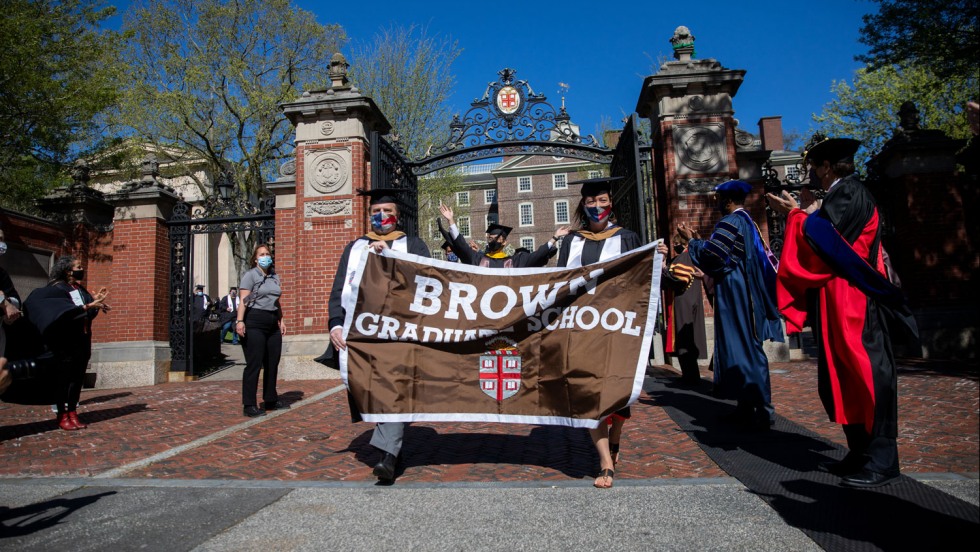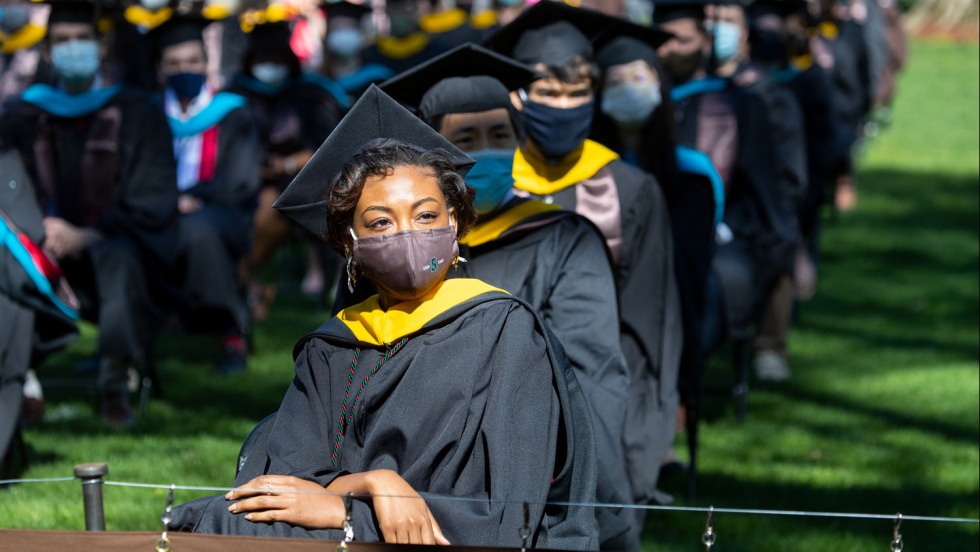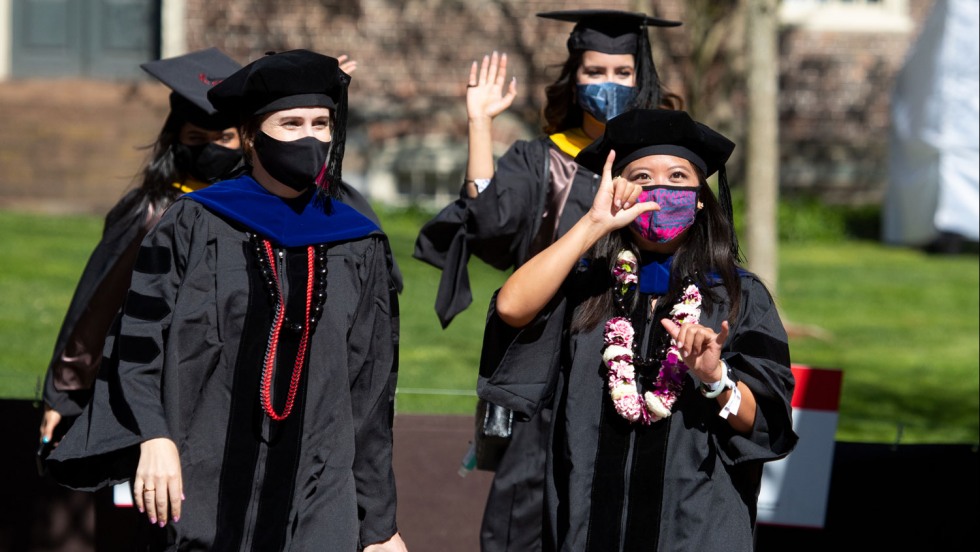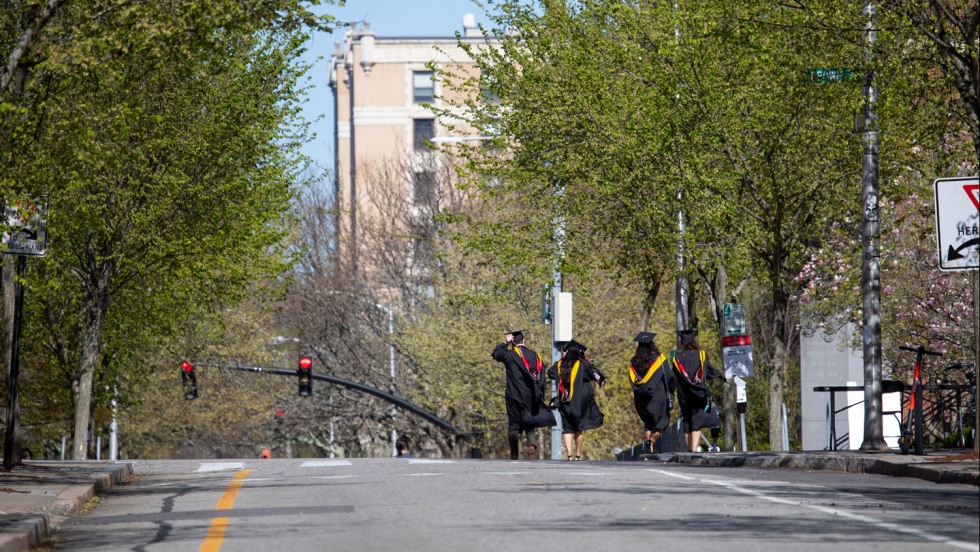‘If not you, then who?’
Discovering the importance of community was a years-long journey for Bardiya Akhbari, who earned a Ph.D. in biomedical engineering. The native of Tehran, Iran, embraced the tenets of American individualism when he first came to the United States, he said. But a public narrative workshop Akhbari attended in September 2017, led by University Provost Richard M. Locke, changed his perspective.
“[The provost] ended his speech by reciting, ‘If not you, then who? If not now, then when?’” Akhbari said in an in-person address during Saturday’s ceremony. “For the first time in the U.S., I didn’t feel alone. I saw beyond myself. When it was just me, I had to fight my battles alone, and I was happy and proud. But with my community, I knew I was unstoppable.”
The workshop drove Akhbari to help international students like him, particularly Iranian nationals, feel more welcome on College Hill. He and a friend founded the Iranian Graduate Students Organization, bringing students together for Iranian cultural events and working with the Graduate School to add support for Iranians who attend and apply to Brown. He also became a member of the International Student Advisory Board and represented biomedical engineering within the Graduate Student Council.
Those years of advocacy, Akhbari said, taught him the importance of harnessing one’s own privilege to help those who need it — something he hopes to do as he pursues a career in higher education and creates a wrist joint replacement for those who struggle with arthritis and other mobility issues.
“Show up — just show up,” Akhbari urged his peers. “It doesn’t matter if you’re planning to stay in academia to educate the next generation of doctors, or become a researcher and push the boundaries of science, or move on to industry to make perfect products that can change our world, or enter politics to directly change lives… [When] they call you, call back. When they don’t call you, volunteer, stand up and take the lead on something that you care about. We have the credentials for it, and we’re the fortunate ones. We are not allowed to stay on the sideline.”




